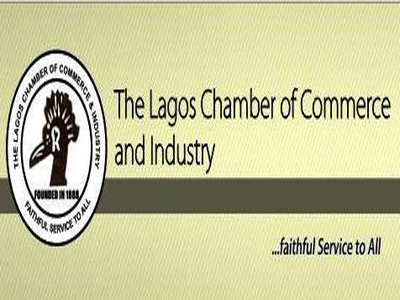The Lagos Chamber of Commerce and Industry (LCCI) and energy stakeholders have called for removal of subsidy on petroleum products to save money for investment in infrastructure.
They gave the advice at LCCI’s fuel subsidy awareness seminar on Tuesday in Lagos.
Dr Michael Olawale-Cole, president, LCCI, noted that with a monthly payment of about N250 billion to subsidise fuel consumption, the sum of N3 trillion was provided in the 2022 Federal Government budget.
According to him, this additional expenditure against the projected revenue would lead to increased deficit financing significantly.
Olawale-Cole said the implication was that government would borrow more in 2022 to finance the deficit at a time when it was battling with revenue mobilisation challenges.
He added that Nigeria’s decision to postpone the full deregulation of the downstream sector of the petroleum industry by 18 months may cost the country over N4 trillion in subsidy payments in 2022.
“In the face of this dilemma, the major concerns of the Organised Private Sector (OPS) are found in the policy inconsistencies that have tainted our policy environment.
“The loss of required foreign direct investments (FDIs); and the likely weak implementation of the Petroleum Industry Act (PIA).
“There is a dire need for more infrastructure to support production, which would mean more job creation, poverty reduction, and improved economic growth,” he said.
He added that the chamber supported the full implementation of the PIA and the total deregulation of the oil and gas sector, it was not insensitive to the plight of the masses that may feel the pains of the removal of fuel subsidy.
“The Federal Government must consider doing all that is possible not to truncate the implementation of the PIA 2021, which has already brought so much hope as a big game-changer for the oil and gas sector,” he said.
The LCCI president noted that oil prices above 110 dollars per barrel had not translated into profits for Nigeria for the reason of equally increasing fuel subsidy payments.
He added that the price of diesel, mostly used in industrial production and other heavy-duty operations had risen above N720 per litre.
“This definitely has implications for production downtimes, rise in prices, and eventually loss of jobs if not curtailed on time.
“The most sustainable way to go is to increase our local refining capacity and save the huge spending of our forex on importation of fuel,” Olawale-Cole said.
Chief Executive Officer, 11 Plc, Mr Tunji Oyebanji, stressed that failure to deal with subsidy removal once and for all may create a fundamental issue for the Nigerian economy.
He noted that the absence of working refineries had greatly affected the cost of petroleum products alongside smuggling by neighbouring countries and volatility of external markets following importation of refined oil.
He stressed that the suspension of the implementation of some some provisions of the PIA such as fuel subsidy removal waned investors interest in the downstream sector.
“The N4 trillion on subsidy also hugely affects the budget of the country and cannot allow the country save for investment in the future.
“The argument has been that the common man would suffer, and inflationary pressures would increase.
“If we have taken the decision 20-30 years ago, the pain would have been lesser than what we have now.
“You cannot continue to give a political solution to an economic problem,” he said.
Mr Olusina Sipasi, Energy Partner, Aelex, posited that the removal of subsidy would give certainty to consumers and all the players across the value chain.
Sipasi noted that some arguments against its removal included inflation, hardship and promotion of illegal refining.
He, however, stated that its removal would allow market autonomy and sustainability, redirection of funds to other critical areas and tackle environmental concerns.
“Issue of trust between government and population must be addressed.
“There is also the need to work on transportation system by making it as cheap as possible to ensure that the full brunt of subsidy removal is not felt by the common man,” he said.
Dr Femi Adekoya, Business Editor, Guardian Newspaper, said trust between the government and its people must be re-established in addressing subsidy issues.
He added that the present administration must take bold steps to make tough decisions to address the structural issues surrounding the implementation of fuel subsidy removal.
Comrade Funmi Sessi, Chairman, Lagos Chapter, Nigerian Labour Congress (NLC) said Nigerians were in dire need of quick solution to the untold pain and hardship from scarcity and high cost of petroleum products, which had become unbearable.
She stated that the rehabilitation of local refineries was the solution to the country’s petroleum products dilemma, saying government must stop relying solely on foreign entities for fuel.




